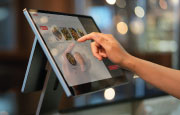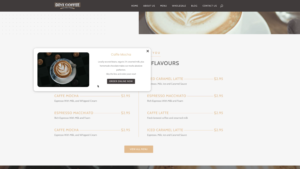HAVE WE LOST THE ART OF THE TELEPHONE CONVERSATION?
One of the curious things to emerge throughout the pandemic is the formalisation of office communications.
Over a year ago, a conversation with a colleague or client often simply meant picking up the phone or mobile and speaking directly to the individual. Fast forward to 2021 and even the most straightforward of workplace discussions involves sending an email, followed-up by an invite to either a Zoom or Microsoft Teams video meeting.
Is this a habit we’ll all find hard to break when normality slowly starts to return and people find themselves back in the office? We take a look at the growth of online video platforms and Lifeline IT’s Daniel discusses what the future may hold for the phone call.
- According to research, 46% of UK workers are expected to continue to work remotely after the pandemic, with more than half (57%) continuing to use online video platforms and 87% saying they will be essential for business operations.[i]
- ‘Zoom fatigue’ has become common. A study by the American Psychological Association found that meetings conducted via video calls leave participants feeling more exhausted and emotionally drained than those held face-to-face. The study found the four most important factors that make video calls so exhausting – constant need for eye contact, the ability to see one’s own face constantly, the need to sit still for long periods and difficulties in interpreting or communicating via body language.[ii]
- Microsoft has recognised that ‘conventional’ calls will continue to be part of communications. The tech company has rapidly developed the Teams platform as a full telephony system, complete with calling plans, as well as an approved full range of telephone handsets.
Lifeline IT’s Daniel explains why he thinks the telephone will remain a key communications tool in the future: “There is still space in the workplace for phone calls – people can’t always be front of camera. Even when using online platforms people are choosing to turn their cameras off.”
“At the moment, most people are very home-bound. But as restrictions start to ease and people begin travelling more for work – using their cars and public transport – I think we’ll see a resurgence in basic one-to-one phone calls. This may still be using platforms such as Zoom and Teams but in a less formal way. Microsoft has just announced that it will be integrating Teams with Apple’s in-car CarPlay system and Zoom is already doing something similar.”
“Perhaps over the coming year we can enjoy the benefits of web meetings, which we have all become really effective at, alongside an improved telephone experience for those occasions when picking up the phone is more appropriate.”
[ii] American Psychological Association Journal ‘Technology, Mind and Behaviour’
SHARE POST
CONNECT
REPORT AN INCIDENT
To access the Lifeline IT support portal and log an incident, login below.
GET IN TOUCH
Email: [email protected]
Phone: 020 8238 7838
STAY UPDATED
Sign up to our newsletter for informative news about the IT and technology landscape
Offices
Head Office
Borehamwood, Herts, WD6 2BT
European Office
Regional Office


Copyright © 2025 Lifeline IT Solutions Ltd. All rights reserved.|Website Design & Development by Viridian Partnership











 This uses the new tabs module, so we can style it however we want using our built in design controls!
This uses the new tabs module, so we can style it however we want using our built in design controls!
 And of course you can add images or whatever you want here too.
And of course you can add images or whatever you want here too.
